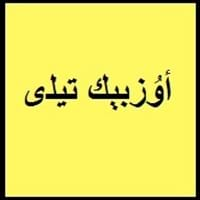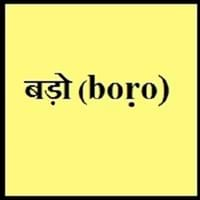Uzbek vs Bodo
Countries
Turkey, Uzbekistan
Assam, India
National Language
Afganistan, China, Kazakhstan, Kyrgyzstan, Russia, Tajikistan, Turkmenistan, Uzbekistan
Assam, India
Second Language
Not spoken in any of the countries
Not Available
Speaking Continents
Middle East
Asia
Minority Language
Not spoken in any of the countries
Not Available
Regulated By
Not Available
Not Available
Interesting Facts
- Uzbek is officially written in the Latin script, but many people still use Cyrillic script.
- In Uzbek language, there are many loanwords from Russian, Arabic and Persian.
- In ancient times, Bodo language was written using Assamese script and Roman script.
- Bodo Language is written using Devanagari script since 1963.
Similar To
Kazakh and Uyghur Languages
Dimasa language, Garo language, Kokborok language
Derived From
Not Available
Not Available
Alphabets in
Uzbek-Alphabets.jpg#200
Bodo-Alphabets.jpg#200
Scripts
Arabic, Cyrillic, Latin
Devanagari
Writing Direction
Not Available
Not Available
Language Levels
Not Available
Time Taken to Learn
Not Available
Hello
Salom
Not Available
Thank You
Rakhmat
Not Available
How Are You?
Qalay siz?
Nungni khabora ma?
Good Night
Hayirli tun
मोजां हर (Mwjang Hor)
Good Evening
Hayirli kech
Not Available
Good Afternoon
Hayirli kun
Not Available
Good Morning
Hayirli tong
मोजां फुं (Mwjang Fung)
Please
Iltimos
अननानै (Onnanwi)
Sorry
Kechiring!
Not Available
I Love You
Sizni sevaman
अननाइ नों (onnai Nwng)
Excuse Me
Iltimos! Menga qarang
Not Available
Dialect 1
Tashkent
(Sønabari) Western Boro dialect
Where They Speak
Not Available
Bongaigaon, Kokrajhar
Dialect 2
Afghan
(Sanzari) Eastern Boro dialect
Where They Speak
Not Available
Barpeta, Darrang, Kamrup, Nalbari
Dialect 3
Ferghana
(Hazari) Southern Boro dialect
Where They Speak
Not Available
Assam, India, Nepal
Speaking Population
Not Available
Native Name
أۇزبېك ﺗﻴﻠی o'zbek tili ўзбек тили (o‘zbek tili)
बड़ो (boṛo)
Alternative Names
Annamese, Ching, Gin, Jing, Kinh, Viet
Bara, Bodi, Boro, Boroni, Kachari, Mech, Meche, Mechi, Meci
French Name
ouszbek
Not Available
German Name
Usbekisch
Not Available
Pronunciation
Not Available
[bɔɽo]
Ethnicity
Uzbek
Bodo, Mech, (Assamese)
Origin
9th–12th centuries AD
1913
Language Family
Turkic Family
Sino-Tibetan Family
Subgroup
Turkic
Tibeto-Burman
Branch
Southestern(Chagatai)
Not Available
Early Forms
Chagatay
Not Available
Standard Forms
Uzbek
Not Available
Language Position
Not Available
Signed Forms
Not Available
Not Available
Scope
Macrolanguage
Individual
ISO 639 1
uz
Not Available
ISO 639 2/T
uzb
Not Available
ISO 639 2/B
uzb
Not Available
ISO 639 6
Not Available
Not Available
Glottocode
uzbe1247
bodo1269
Linguasphere
No data available
Not Available
Language Type
Living
Living
Language Linguistic Typology
Not Available
Not Available
Language Morphological Typology
Not Available
Not Available
Uzbek and Bodo Language History
Comparison of Uzbek vs Bodo language history gives us differences between origin of Uzbek and Bodo language. History of Uzbek language states that this language originated in 9th–12th centuries AD whereas history of Bodo language states that this language originated in 1913. Family of the language also forms a part of history of that language. More on language families of these languages can be found out on Uzbek and Bodo Language History.
Uzbek and Bodo Greetings
People around the world use different languages to interact with each other. Even if we cannot communicate fluently in any language, it will always be beneficial to know about some of the common greetings or phrases from that language. This is where Uzbek and Bodo greetings helps you to understand basic phrases in Uzbek and Bodo language. Uzbek word for "Hello" is Salom or Bodo word for "Thank You" is Not Available. Find more of such common Uzbek Greetings and Bodo Greetings. These greetings will help you to be more confident when conversing with natives that speak these languages.
Uzbek vs Bodo Difficulty
The Uzbek vs Bodo difficulty level basically depends on the number of Uzbek Alphabets and Bodo Alphabets. Also the number of vowels and consonants in the language plays an important role in deciding the difficulty level of that language. The important points to be considered when we compare Uzbek and Bodo are the origin, speaking countries, language family, different greetings, speaking population of these languages. Want to know in Uzbek and Bodo, which language is harder to learn? Time required to learn Uzbek is 44 weeks while to learn Bodo time required is Not Available.





